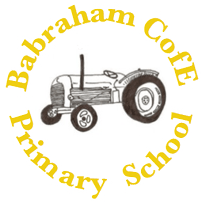
Writing
Welcome to Our Writing Page!
Writing is probably the most complex process that we ask children to perform. A runner does not learn to run a marathon by running long distances at the beginning of their training; they build up slowly and develop their running technique over time. Equally, a pianist must learn and practice scales repeatedly in order to perform complex compositions. In the same way, children need to learn basic grammatical skills to automaticity before they can confidently compose extended pieces of writing to a high standard.
At Babraham, we focus on teaching six text types: recount, report, instructional, explanation, discussion, and persuasive texts. The text types are introduced and revisited in a specified sequence to reduce cognitive load. Additionally, the core grammar knowledge for each phase (KS1, LKS2, UKS2) is specified and carefully sequenced so that children have plentiful opportunities to learn the skills and practice them to automaticity. Once children are ready to apply these skills, they draft extended pieces. The writing outcomes are based on content from the text read and discussed in the whole class reading lessons or from previously taught content in foundation subjects. Again, this is to ensure the focus is on thinking about grammar, punctuation, and vocabulary choices, rather than making up content, which is something children do naturally when we use rich texts. In early years, the focus is on oral language development, however children will be exposed to writing through encoding the sounds they hear in their phonics lessons. There are opportunities for writing within continuous provision, but children will not be expected to write extended pieces until they are developmentally ready.
This planning process begins with identifying the purpose for writing – to entertain, to inform, to persuade or to discuss. The skills needed for each writing purpose are built and the children have time to practice and consolidate this learning.
Children are taught explicitly how to plan their writing and time is spent re-drafting, so that all children carefully consider the choices they are making. This ensures that every child can become a competent and successful writer. We believe in improving the writer not improving a single piece of writing. The cycle of drafting, responding to feedback and redrafting is repeated until children complete a piece of extended writing. This enables the taught grammar and punctuation to become embedded, so that children think carefully about their language choices and apply this in new pieces of writing across the curriculum. The true assessment of a child’s writing ability comes when teachers observe how they are applying the English learning in other curriculum areas, as well as future English writing.
